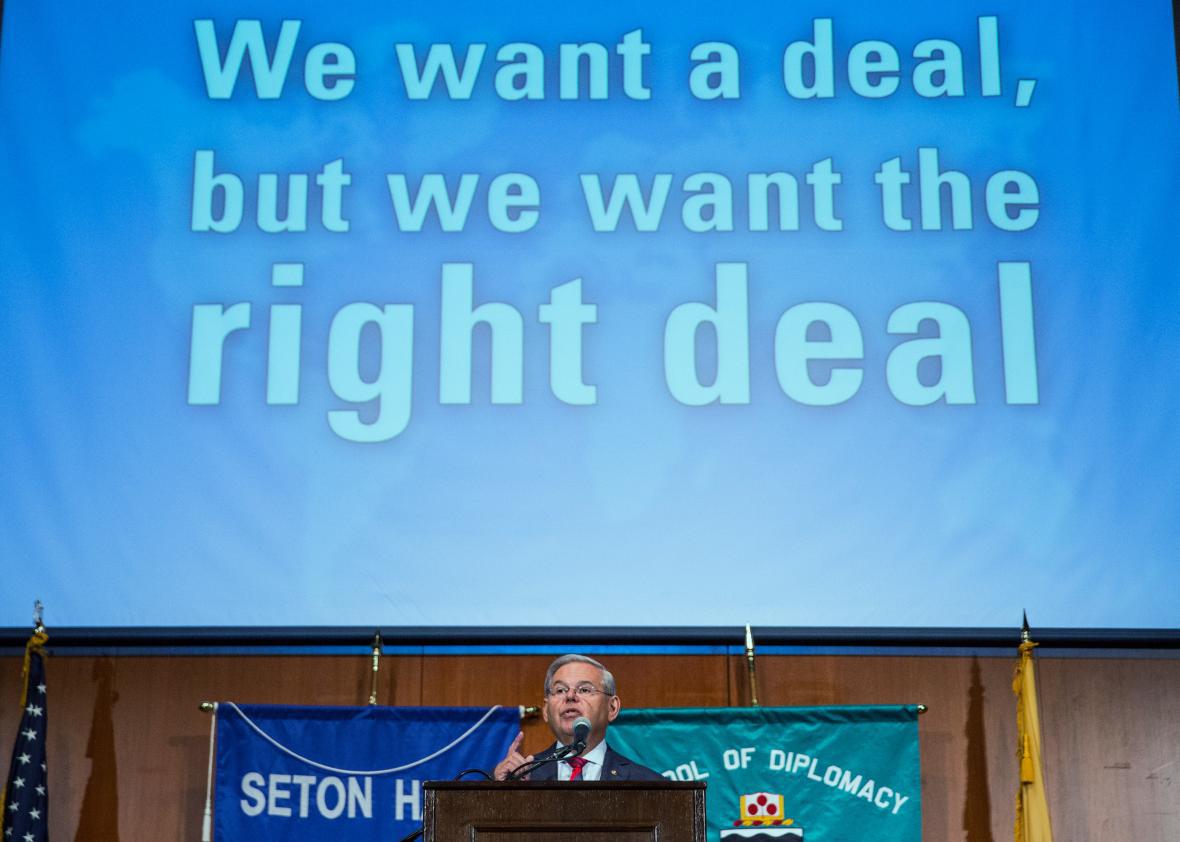Robert Menendez of New Jersey today became the second Democratic senator to announce his opposition to the nuclear deal with Iran, saying in a speech at Seton Hall University that he “will vote to disapprove the agreement and, if called upon, would vote to override a veto.”
Menendez, a senior member of the Senate Foreign Relations Committee and longtime proponent of sanctions on Iran’s nuclear program who has clashed with the Obama administration on this issue in the past, said that the agreement as negotiated “failed to achieve the one thing it set out to achieve—it failed to stop Iran from becoming a nuclear weapons state at a time of its choosing.” Menendez said his “overarching concern is that it requires no dismantling of Iran’s nuclear infrastructure and only mothballs that infrastructure for 10 years” and recommits Iran to agreements, such as the Nuclear Nonproliferation Treaty, that it has violated in the past.
The hawkish senator is now publicly opposed to the White House’s two signature foreign policy moves of the past year: the Iran deal and the normalizing of diplomatic relations with Cuba, a move the Cuban-American Menendez says “stinks.” He joins New York’s Chuck Schumer as well as the entire Republican caucus in opposing the Iran deal. A vote for a motion disapproving of the agreement, which Obama has said he will veto, is likely in September. The next big question mark is Menendez’s New Jersey counterpart Cory Booker, who is still undecided and is being heavily lobbied by both the White House and the pro-Israel groups that donated more to his campaign than any other Democrat in the last election cycle.
Even with heavy lobbying on both sides, Obama’s veto of the agreement is still likely to stand. About 30 of the 34 senators needed to uphold a presidential veto are already on board, and House Minority Leader Nancy Pelosi says she is optimistic she can keep most of her caucus together despite some notable defections. The fact that the veto is likely to stand may actually make it easier for Iran hawks like Menendez and Schumer to oppose the White House.
Nevertheless, there’s already some speculation about how the White House could proceed if Obama’s veto were overridden. The AP’s Deb Riechmann noted Monday that though he would undoubtedly face heavy criticism, Obama could still lift most of the sanctions imposed on Iran through executive order, and Europe and the U.N. could lift others. Still, some of the toughest sanctions, including measures orchestrated in large part by Menendez, were imposed by Congress, and Iran could interpret a decision not to lift these as the U.S. violating its commitments under the agreement, something hardliners, including the country’s supreme leader, have warned of. This would probably make Iran less likely to comply with the terms of the deal. The warning from Washington’s hawks that Iran can’t be trusted to halt its nuclear program could turn out to be self-fulfilling.
Update, 5:15 p.m. Following Menendez’s announcement, Rhode Island senators Jack Reed and Sheldon Whitehouse announced their support for the deal.
